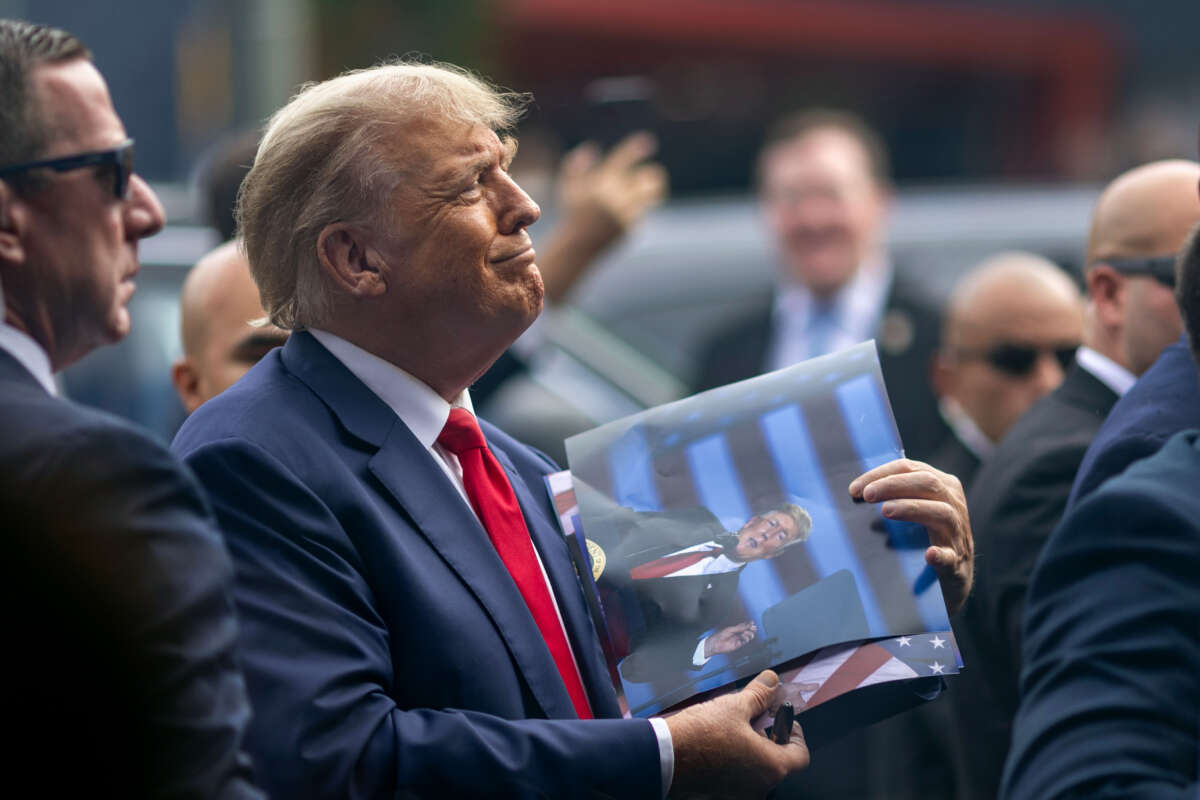Former President Donald Trump’s legal team has requested that a judge delay his classified documents trial until after the 2024 election, arguing that they haven’t received all the necessary records to review and prepare his defense.
Trump’s lawyers filed a motion late Wednesday urging U.S. District Judge Aileen Cannon to postpone the trial from May 20 to at least mid-November 2024. His lawyers argued that the delay was necessary due to scheduling conflicts and not receiving all evidence as part of the discovery process.
Another federal trial is set for March 2024 in Washington and one of Trump’s attorneys, Christopher Kise, is also representing him in an ongoing civil fraud trial in New York, where he is facing charges for inflating the values of his properties, according to The Associated Press.
“As far as the discovery process is concerned, everything depends on Judge Cannon’s willingness to make Trump toe the line regarding the schedule she already has set,” former federal prosecutor Kevin O’Brien told Salon.
Trump’s team also mentioned delays in getting access to all classified evidence, particularly to nine of the 32 classified documents, referred to in the indictment by special counsel Jack Smith. They stated concerns with only having “access to a small, temporary facility in Miami” to view the highly classified records.
His team complained about being required to physically visit this facility while simultaneously managing the hearing dates for Trump’s trial.
“The March 4, 2023 trial date in the District of Columbia, and the underlying schedule in that case, currently require President Trump and his lawyers to be in two places at once,” Trump’s attorneys wrote in the filing.
The defense team has the “bulk” of the restricted materials relevant to the case O’Brien pointed out, which “should give Trump plenty of time to prepare for a May 2024 trial.”
Special counsel prosecutors indicated last week that they believed Trump’s legal team was pursuing unreasonable delays in the case. But they acknowledged that some procedural steps were taking slightly longer than expected and refuted the claim that they were intentionally causing delays in producing evidence for the case.
The prosecutors noted that Trump’s lawyers had lacked the “necessary read-ins to review all material” provided by the government.
“Trump’s lawyers are using CIPA to try to delay the trial, saying the Special Counsel hasn’t produced all the discovery and that they want to review all the discovery before they engage in the CIPA litigation process,” former federal prosecutor Neama Rahmani told Salon. “They may also try to force the government to disclose classified materials at trial, a strategy known as ‘graymail.'”
This isn’t the first time the former president has attempted to delay a trial, in which he is charged with illegally retaining classified documents after leaving the White House in 2021 and repeatedly obstructing government efforts to recover these records.
In their initial request for a trial delay, Trump’s legal team argued that he couldn’t receive a fair trial while actively campaigning for office, The New York Times reported. However, the recent proposal to postpone the proceedings didn’t explicitly reference the election.
Should the trial be postponed, and if Trump is to secure victory in the election, he could potentially tell his attorney general to dismiss the charges against him, according to The Times.
“Trump’s best defense has been and continues to be delay,” Rahmani said. “If he wins the election next year and regains the White House, his criminal problems go away. A sitting president can’t be prosecuted. And if another Republican wins, they may try to fire Special Counsel Jack Smith for cause.”
Trump has pleaded not guilty and has consistently denied any wrongdoing. The charges of unlawfully retaining classified documents is among one of the four criminal cases the leading contender for the Republican nomination is facing.
The ex-president has also been charged in state indictments of falsifying business records in New York relating to his alleged 2016 hush-money payment to adult film star Stormy Daniels and for interfering with the results of the 2020 election in Georgia.
Our most important fundraising appeal of the year
December is the most critical time of year for Truthout, because our nonprofit news is funded almost entirely by individual donations from readers like you. So before you navigate away, we ask that you take just a second to support Truthout with a tax-deductible donation.
This year is a little different. We are up against a far-reaching, wide-scale attack on press freedom coming from the Trump administration. 2025 was a year of frightening censorship, news industry corporate consolidation, and worsening financial conditions for progressive nonprofits across the board.
We can only resist Trump’s agenda by cultivating a strong base of support. The right-wing mediasphere is funded comfortably by billionaire owners and venture capitalist philanthropists. At Truthout, we have you.
We’ve set an ambitious target for our year-end campaign — a goal of $250,000 to keep up our fight against authoritarianism in 2026. Please take a meaningful action in this fight: make a one-time or monthly donation to Truthout before December 31. If you have the means, please dig deep.
